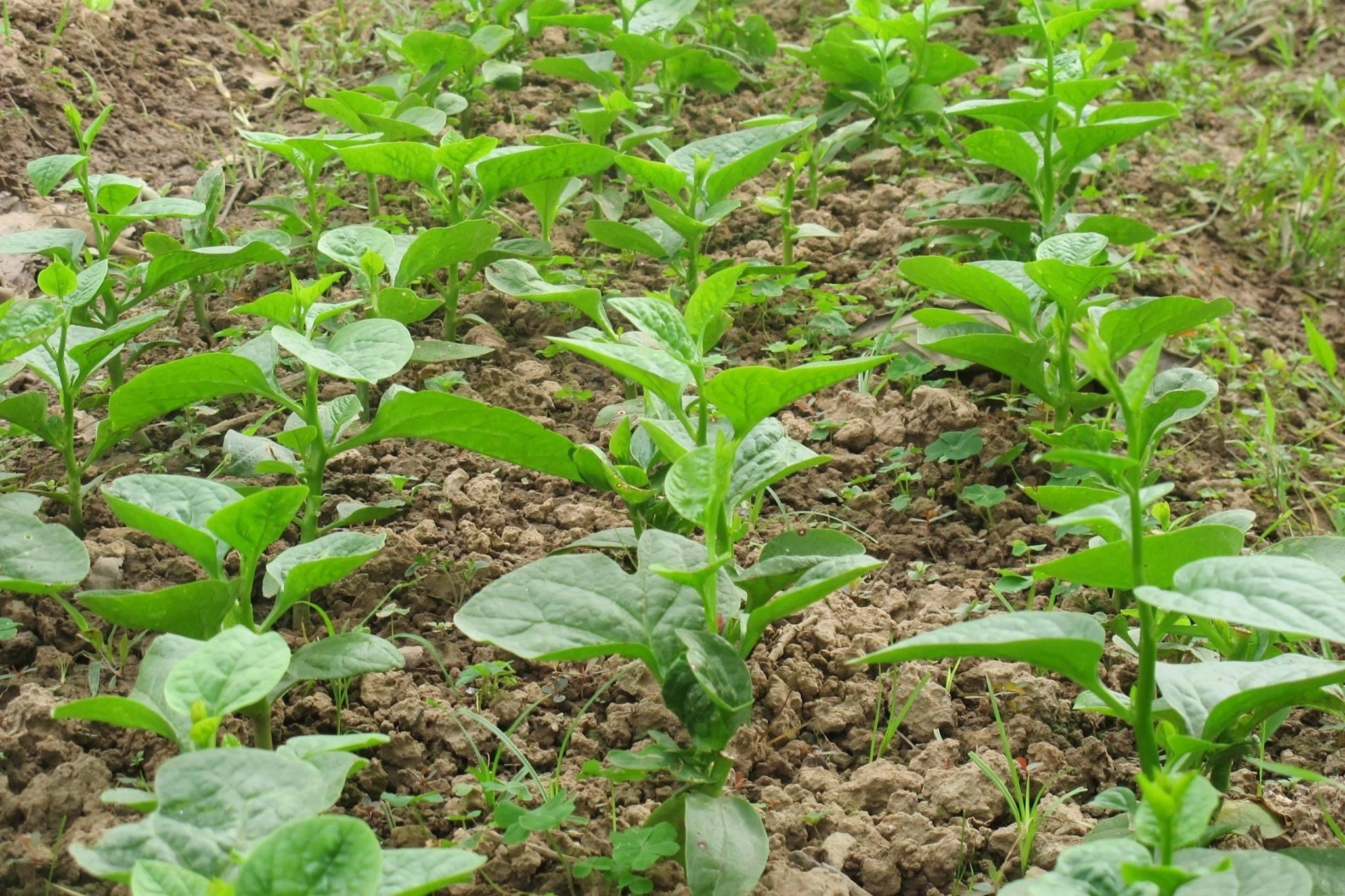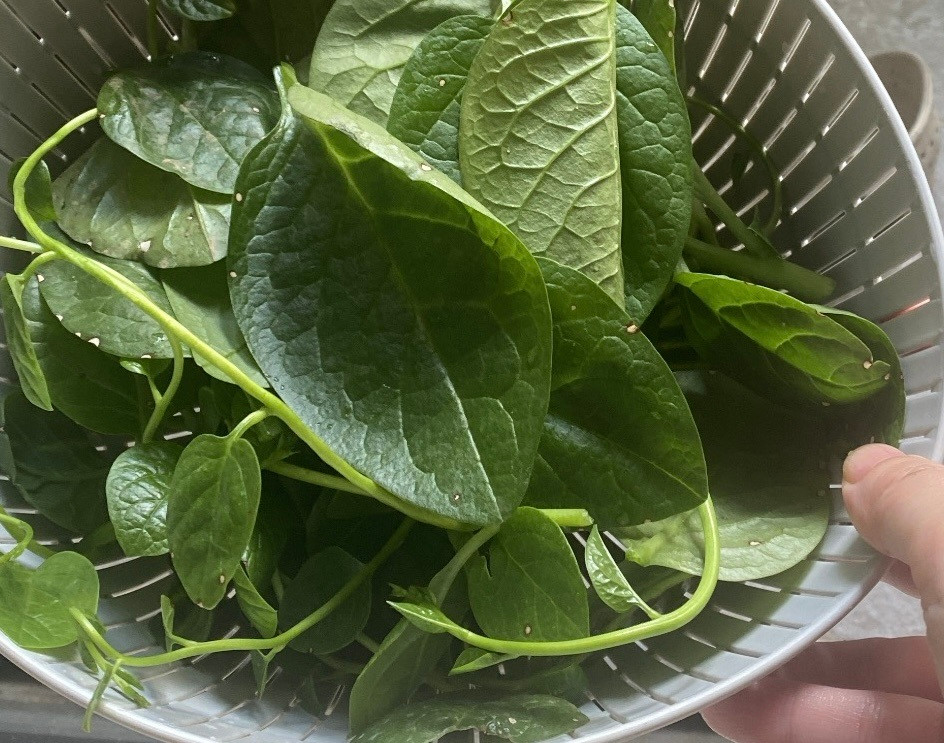Who should not eat Malabar spinach?
In addition to being used as a vegetable, Malabar spinach is also a medicinal herb in Oriental medicine, helping to laxative, treat constipation, reduce blood fat... So does Malabar spinach have any harmful effects? Who should not eat it?
Malabar spinach provides many important nutrients for the body such as sodium, lipids, potassium, fiber, carbohydrates, protein, calcium, iron, vitamins (vitamins A, B6, B12, C, D). Just eating a small bowl of cooked Malabar spinach a day provides enough vitamin A and iron for the body's needs.
Regularly eating Malabar spinach in cooked, stir-fried or boiled form helps eliminate cholesterol and excess fat through the stool, cleans the intestines, thereby preventing fatty blood and obesity.
This vegetable is rich in nutrients but contains high levels of oxalic acid and purines. Therefore, you need to pay attention to some things after using it, whether in the form of food or medicine.

Regularly eating Malabar spinach helps eliminate cholesterol and excess fat. Illustration: NP
What is Malabar spinach incompatible with?
According to Nguyen Tri Phuong Hospital (Ho Chi Minh City), Malabar spinach is incompatible with beef. When combined together, it will reduce the laxative effect of Malabar spinach, and cause bloating and indigestion. In particular, those who are constipated and eat Malabar spinach with beef will make the difficulty in defecation even worse.
In addition, you should not cook cheese with Malabar spinach. Both of these ingredients are rich in protein, so eating them together will cause excess energy, increasing the digestive burden on the intestines.
Is Malabar spinach good for pregnant women?
According to nutritionists, Malabar spinach is one of the foods that are extremely beneficial for pregnant women as well as fetuses. Pregnant women who regularly eat this vegetable have the following effects:
- Helps cool the body, reduce fat and blood sugar, and contribute to weight control for pregnant women.
- Pregnant women who often suffer from constipation can use Malabar spinach instead of harmful laxatives. It promotes digestion by adding mucus and soluble fiber, making it easier for pregnant women to defecate.
- Active ingredients such as carotenoids, zeaxanthin or beta carotene found in Malabar spinach can help inhibit the growth of harmful free radicals, prevent birth defects and protect the health of women during pregnancy.
- Malabar spinach helps beautify the skin and brighten the eyes for pregnant women thanks to its rich vitamin A and flavonoid content.
- Possessing a rich vitamin C content, Malabar spinach has the ability to improve the immune system, preventing infections during pregnancy.
- In addition, Malabar spinach also provides a lot of iron and folate to ensure the fetus develops fully both mentally and physically.

Eating too much Malabar spinach can increase the risk of kidney stones. Illustration: NP
Does Malabar spinach have any side effects?
Although Malabar spinach has many good effects, if used incorrectly it can also cause some harmful effects on health such as:
- Hinders the body's ability to absorb iron and calcium due to its high oxalic acid content. Therefore, when eating Malabar spinach, patients are advised to eat it with foods rich in vitamin C to neutralize oxalic acid.
- Increases the risk of kidney stones if eaten too much.
- Due to its high fiber content, eating too much Malabar spinach can cause stomach upset.
- Malabar spinach can increase uric acid in the blood due to its high purine content.
- Causes cold stomach, diarrhea when used in high doses.
Who should not eat Malabar spinach?
You should limit or abstain from using Malabar spinach if you are having problems such as kidney stones, diarrhea, cold stomach, stomach pain, cold constitution, gout or high uric acid in the blood.
In addition, you should combine Malabar spinach with foods of animal origin to reduce the cold properties of the medicinal herb. Medicinal dishes from Malabar spinach after being processed should be eaten within the day. Each time you eat, you should reheat it, avoid leaving it overnight to avoid spoilage and poisoning.
At the same time, we should pay attention to choosing clean Malabar spinach to use. Vegetables that are not contaminated with chemicals often have small, slightly stiff stems, leaves and shoots. On the contrary, vegetables contaminated with chemicals often have large, plump stems, long shoots, shiny, green leaves that are very eye-catching./.


